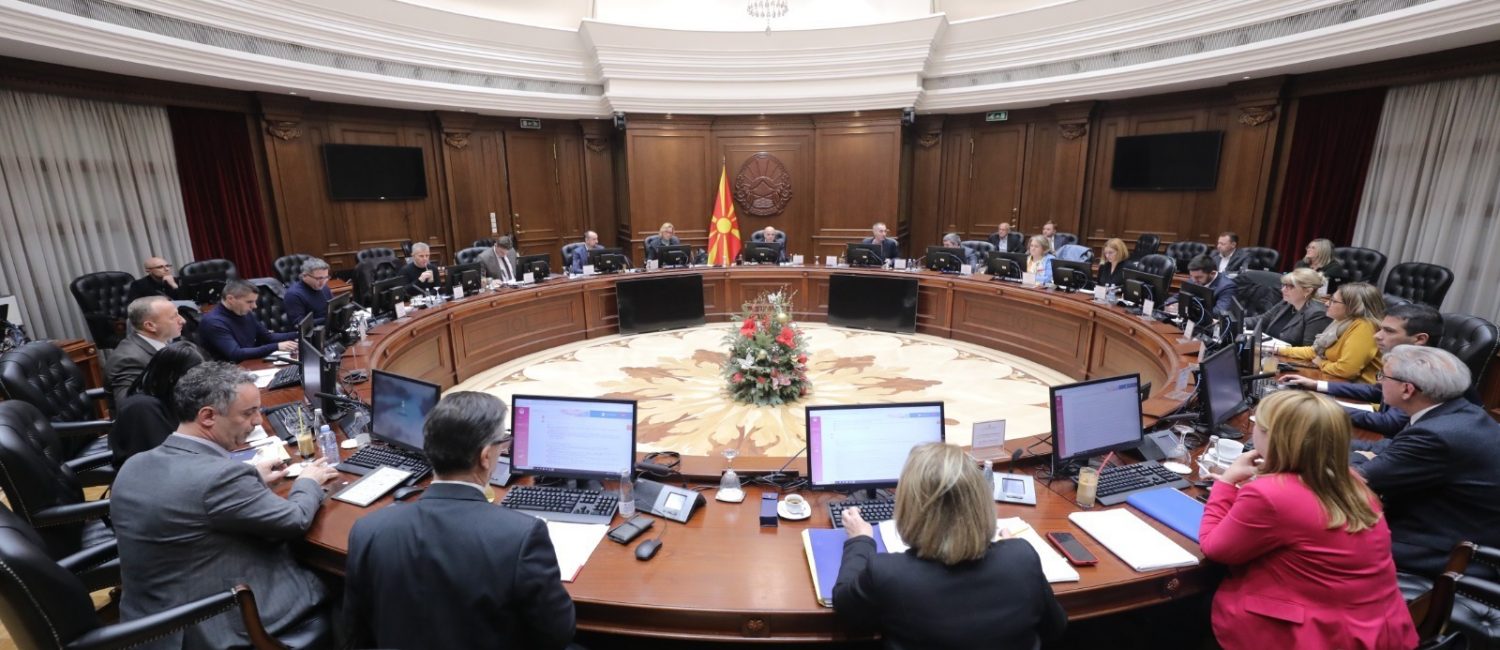18th January 2024, Skopje – Seventeen reform measures as part of six structural reforms are incorporated in the new Economic Reforms Program (ERP) 2024-2026, prepared by the Ministry of Finance, in cooperation with other institutions. This Program was adopted at the latest Government’s session. The reforms set as priorities in ERP 2024-2026 are aimed at boosting the competitiveness of the country, the economic sustainability and resilience, as well as strengthening both the human capital and the social policies.
“Economic Reforms Program 2024-2026 is the tenth cycle jointly implemented with the EU, identifying the reforms on our way towards EU membership. This Program being the basis in the preparation of the Reform Agenda for North Macedonia as per the new Growth Plan for the Western Balkans, is worthy of attention Program preparation and successful coordination of the ongoing activities speaks in favor of our extensive experience, given the already carried out nine cycles of the Economic and Financial Dialogue with the EU. This experience is the foundation in preparing our Reform Agenda for the new Growth Plan for the Western Balkans, providing for intensified implementation dynamics as regards the key reforms”, Minister of Finance, Fatmir Besimi highlighted.
Favorable business climate and the upcoming integration within the EU Single Market, providing stable and sustainable food supply, strengthening the resilience to climate change, reducing environment pollution, delivering efficient digital public services, improving workforce efficiency, and further implementing the social reform package are the six structural reforms identified within the Economic Reforms Program. For the purpose of their implementation, ERP 2024-2026 contains 17 reform measures, covering introduction of mechanisms for formalization of informal work, support for development of innovation ecosystem, harmonization with the EU acquis in the field of Single Market, modernization of post-harvest technologies and processes related to trade in agricultural products, energy efficiency and renewable energy sources, solid waste and wastewater management, expansion of the digital public services scope, digital transformation of the Public Revenue Office, development of qualification system, increase of labor market flexibility, improvement of the healthcare system, etc.
Implementation of these measures contributes to 9% reduction of informal workforce out of the total workforce by 2026, 29% increase of share of renewable energy sources in the final consumption by 2025, accessibility to 550 services on the E-Service Portal by 2025, complete digitalization of tax-payers services by 2026 and similar.
Economic Reforms Program is a coherent strategic document, being a joint result of the actions taken by multiple institutions over a period of several months, with its overall preparation being coordinated by the Ministry of Finance. When selecting key sectoral structural reforms as a part of the Program, the institutions take into consideration the challenges and issues in the corresponding areas, which overcoming will impact the increase of competitiveness and economic growth of the country, as well as the job creation.
Economic Reforms Program adheres to the EC Report recommendations, being in line with the Government Work Plan, the Revised Fiscal Strategy, the Revised Public Debt Management Strategy, and the State Budget, as well as other national strategic documents. In addition, ERP is in line with the UN Sustainable Development Goals, the Multi-annual Action Plan for Regional Economic Integration of Western Balkans Countries, EU: The Green Agenda, the Digital Agenda, and the Economic Investment Plan for the Western Balkans.
Ministry of Finance, as the process coordinator, submitted, upon its adoption by the Government, the ERP 2024-2026 to the European Commission, followed by a process of consideration and assessment missions, as well as endorsement of joint conclusions within the Economic and Financial Dialogue.
















